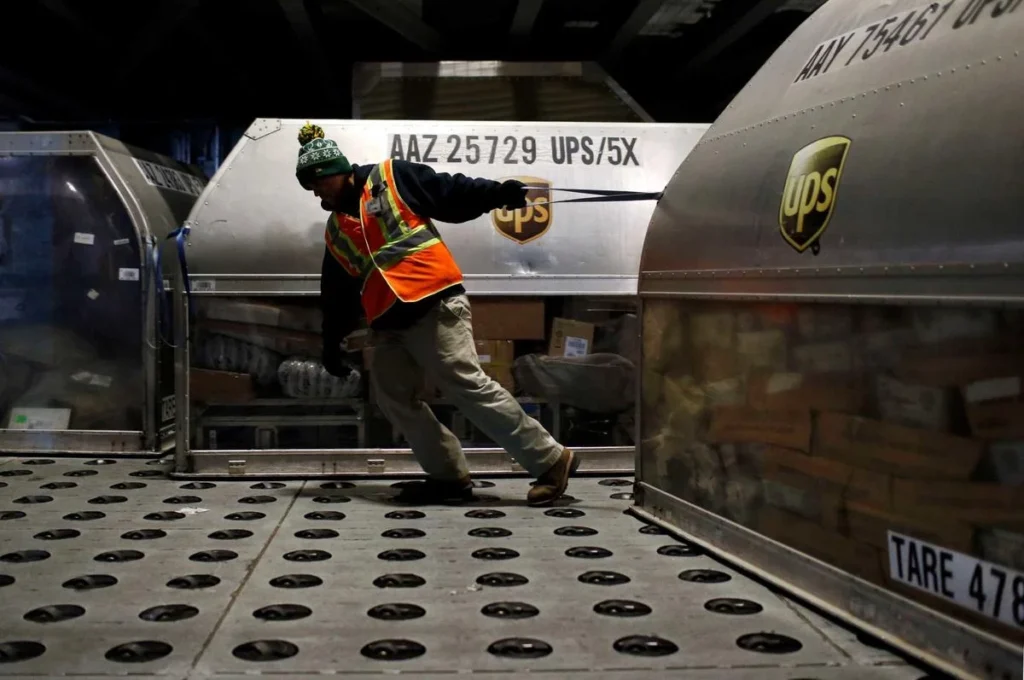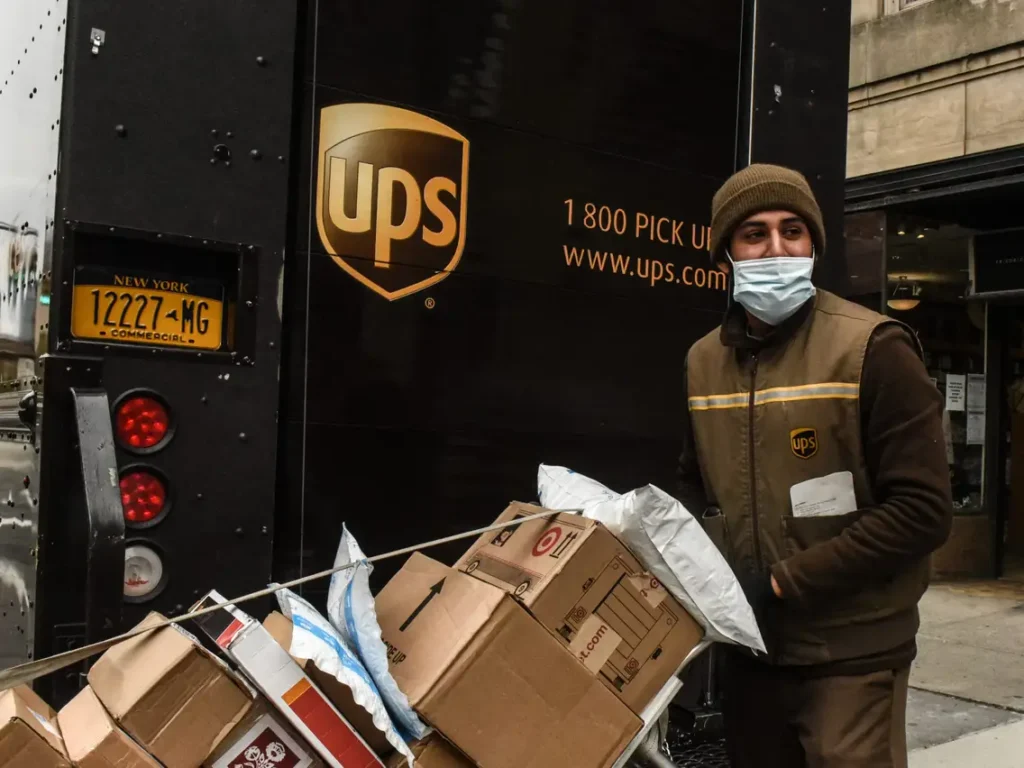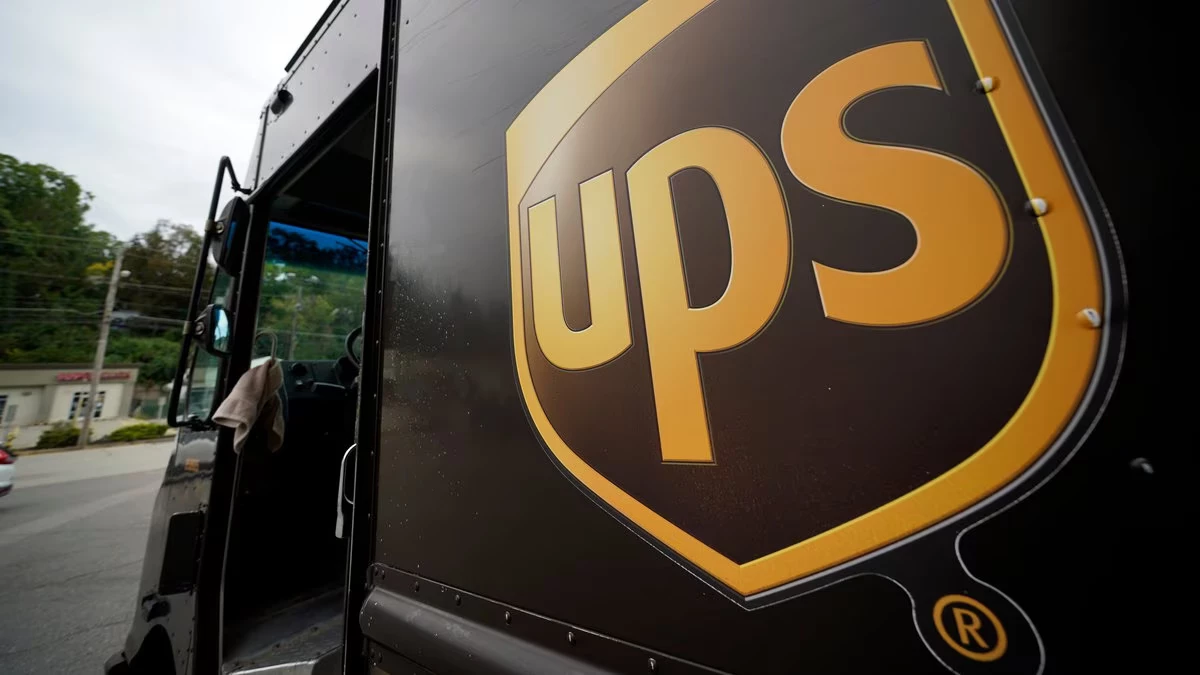Ups Customs Charges: How to Reclaim
Discover the step-by-step guide on reclaiming UPS customs charges. Learn how to efficiently navigate the process and get your money back hassle-free. Get expert insights and tips to successfully reclaim UPS customs charges.

What are UPS Customs Charges?
UPS customs charges, also known as customs duties or import taxes, are fees imposed by a country’s government on goods imported from abroad.
These charges are calculated based on the value and type of goods being shipped. When shipping internationally, UPS acts as the customs broker, handling the payment of these charges on behalf of the recipient.
To reclaim UPS customs charges, you need to follow specific procedures and meet specific criteria, which we will outline in detail.
Ups Customs Charges: How to Reclaim
Before diving into the reclaiming process, it’s essential to understand what UPS customs charges entail.
These charges are levied by customs authorities and include import duties, taxes, and fees imposed on goods entering a country. They are based on the value, type, and origin of the imported goods.
Identifying Eligible UPS Customs Charge Reclaims
Not all customs charges can be reclaimed, but certain scenarios allow you to get your money back. Here are the situations where you may be eligible for a UPS customs charge refund:
1. Incorrect Customs Valuation
One of the common situations that may make you eligible for a UPS customs charge refund is an incorrect customs valuation.
Customs authorities determine the value of the imported goods, and sometimes they may overvalue the items, resulting in higher charges.
If you believe that the customs valuation is inaccurate and does not reflect the true value of your goods, you can request a refund based on the accurate valuation.
To initiate this process, you will need to provide evidence of the actual value of the goods, such as invoices, receipts, or any other relevant documentation.
This evidence will support your claim and increase the chances of a successful refund. UPS takes such claims seriously, and if your case is valid, you can expect reimbursement for the excess charges paid due to the incorrect valuation.
2. Goods Returned or Rejected
Another scenario that may qualify you for a UPS customs charge refund is when you return or reject the imported goods.
In certain situations, you may decide not to accept the shipment due to damaged items, incorrect items received, or any other valid reasons for rejection. In such cases, you can be eligible for a refund on the customs charges.
It’s important to note that the goods must be returned or rejected in compliance with customs regulations and within the specified time frame.
Additionally, you will need to provide evidence of the return or rejection, such as shipping documentation or communication with UPS.
By doing so, you demonstrate that you did not benefit from the imported goods, justifying the refund of the customs charges.
3. Tariff Exemptions or Reductions
If your imported goods are eligible for tariff exemptions or reductions, you have a strong case for claiming a refund for excessive charges paid. Tariffs are taxes imposed on specific categories of goods during international trade.
However, certain goods may be exempt from tariffs due to trade agreements or other specific reasons. Before claiming a refund, you must ensure that your goods fall under the category eligible for exemptions or reductions.
This information can usually be obtained from the customs authority’s official website or through trade agreements.
Once you confirm your eligibility, you can proceed with the refund request, providing the necessary documentation to support your claim.
4. Errors in Tariff Classification
The classification of goods under the correct tariff code is crucial for determining the applicable customs duties. However, there are instances where your goods might be misclassified, leading to higher charges.
If you believe that your goods have been assigned the wrong tariff code, resulting in an overcharge of customs fees, you can seek a refund based on the correct classification.
To establish your case, you will need to present evidence that supports the correct classification of your goods. This evidence may include detailed product descriptions, specifications, or guidance from the customs authority itself.
With a well-documented case, UPS will review your claim and refund the excess charges if it is determined that an error in tariff classification indeed occurred.
READ ALSO!!!
- How to Read a UPS Packing Slip
- What is Ups Expedited Shipping?
- How to Pay Ups and Fedex Invoices
- Ups Shipping Zones: What Are They?
Tips for a Smooth UPS Customs Charge Reclaim
Here are some extra tips to ensure a smooth UPS customs charge reclaim:
1. Know the Reason for the Customs Charge
Understanding why a customs charge was imposed in the first place is crucial. UPS may charge customs fees for duties, taxes, or other import-related expenses.
Knowing the specific reason behind the charge will help you determine whether you need to reclaim it or not.
2. Review UPS’s Customs Reclaim Policy
Before proceeding with the reclaim process, familiarize yourself with UPS’s customs reclaim policy.
This information is available on their official website and will outline the procedures, time limits, and any additional requirements for reclaiming customs charges.
3. Check for Overcharges
Mistakes can happen, and sometimes you might be overcharged for customs fees. It’s essential to verify the charges to ensure they are accurate and in line with the shipment’s declared value and classification.
4. Gather Necessary Documents
To support your customs charge reclaim, gather all relevant documents, including the original invoice, shipment details, and any other paperwork related to the shipment.
These documents will serve as evidence during the reclaim process.
5. Contact UPS Customer Support
If you have questions or concerns about the customs charge, reach out to UPS customer support. They can provide clarification and guide you through the reclaim process.
Be prepared with the shipment details and any supporting documents when contacting them.
6. Submit a Customs Charge Reclaim Request
Follow UPS’s designated process for submitting a customs charge reclaim request. The process may involve filling out an online form or sending an email with the necessary details.
Make sure to provide accurate and comprehensive information to avoid delays.
7. Be Patient During the Reclaim Process
Reclaiming customs charges can take time as UPS investigates the claim. Be patient throughout the process and keep track of any correspondence with UPS regarding your claim.
8. Check the Status of Your Reclaim
Regularly check the status of your customs charge reclaim through UPS’s tracking system or by contacting customer support. Staying informed will help you know if any additional actions are required on your part.
9. Review the Decision
Once UPS reviews your reclaim request, they will notify you of their decision. If the reclaim is successful, you should receive a refund for the overcharged customs fees. If not, they will provide a detailed explanation for the denial.
10. File an Appeal if Necessary
If your customs charge reclaim is denied, and you believe the decision was unjust, UPS may allow you to file an appeal. Make sure to follow their appeal process and provide any additional evidence that supports your claim.
Gathering Necessary Documentation

When filing for a UPS customs Charge refund, you’ll need to gather essential documentation to support your claim:
1. Invoice or receipt from UPS showing the customs charges paid.
2. Proof of the correct value of the imported goods, such as purchase invoices.
3. Documentation supporting any tariff exemptions or reductions.
4. Any relevant communication with customs authorities or UPS regarding the charges.
Initiating the Refund Process
Now that you have the necessary documents, it’s time to initiate the UPS customs charge refund process. Follow these steps:
1. Contact UPS Customer Service: Contact UPS customer service and inform them about the incorrect charges. They will guide you on the next steps and the required paperwork.
2. Submit Refund Request: Fill out the appropriate refund request form provided by UPS. Include all relevant documents to substantiate your claim.
3. Await Response: UPS will review your claim and documentation. Be patient during this process, as it may take some time.
READ ALSO!!!
- 10 Benefits of Hauling UPS Peak Season Freight
- How to Ship Lithium Batteries with UPS
- The Guide to UPS Overnight Shipping
- How to Ship Furniture With Ups
Reasons for the Rejection Provided by UPS
Understanding the reasons for the rejection of UPS customs charge reclaims can help you avoid potential pitfalls and increase your chances of success. Here are some common reasons for rejection:
1. Incorrect or Incomplete Documentation
One of the most prevalent reasons for rejection is submitting incorrect or incomplete documentation.
Ensure all required paperwork is accurate, including the commercial invoice, proof of payment, and any other relevant documents.
2. Missed Deadlines
UPS has specific time frames for filing customs charge reclaims. If you miss the deadline, your claim may be rejected. Be diligent in adhering to the designated time limits.
3. Prohibited or Restricted Goods
Certain goods are prohibited or restricted from entering specific countries. If you attempt to reclaim customs charges on such items, your claim will likely be rejected.
4. Insufficient Evidence
Insufficient evidence to support your claim can lead to rejection. Make sure you have all the necessary documentation, including proof of payment and the actual value of the goods.
5. Repeated Reclaims for the Same Issue
Submitting multiple reclaims for the same issue without providing additional evidence may lead to rejection. Ensure you address all concerns and provide comprehensive information in your initial claim.
6. Incorrect Classification of Goods
Customs charges are often calculated based on the classification of goods. If the goods are misclassified, your reclaim may be rejected.
By understanding these common reasons for rejection, you can take proactive measures to avoid them and increase the chances of a successful customs charge reclaim.
Conclusion
Reclaiming UPS customs charges might seem daunting, but armed with the right knowledge and documentation, it becomes manageable.
Understanding the circumstances under which you can request a refund is crucial, as is following the correct procedure while providing sufficient evidence to support your claim.
Now you can confidently navigate the UPS customs charge refund process and recoup any excessive charges. Reclaim your money and import goods hassle-free!
